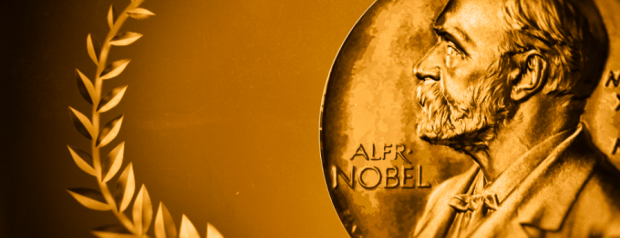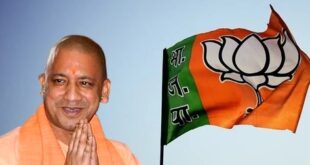Fredrik S. Heffermehl
 The Norwegian Nobel Committee will soon address the pile of nominations received for 2021. The number is constantly increasing, this year it will probably be around 350. Not easy to find the best. But much easier if the awarders would comply with Alfred Nobel´s visionary idea of supporting a global farewell to arms; then the number could easily be reduced to a dozen. Moreover, the award could become a significant contribution to world peace as he intended.
The Norwegian Nobel Committee will soon address the pile of nominations received for 2021. The number is constantly increasing, this year it will probably be around 350. Not easy to find the best. But much easier if the awarders would comply with Alfred Nobel´s visionary idea of supporting a global farewell to arms; then the number could easily be reduced to a dozen. Moreover, the award could become a significant contribution to world peace as he intended.
The committee surrounds its work with maximum secrecy, we will only know who was nominated 50 years from now. This follows from the committee by-laws, issued by the Swedish king in 1900, andwoefully out of date. In modern society, great emphasis is placed on transparency and democratic debate, both as a corrective and protection against abuse of power. Just as important are the open discussions about candidates, Nobel’s purpose, and peace policy, they will strengthen the significance and effect of the award.
The committee should therefore welcome the fact that this year’s nominations are now available to everyone, posted by Nobel Peace Prize Watch (NPPW) on its website, nobelwill.org – if they relate to Nobel´s intention. In a recent letter to the awarders, NPPW has listed the dozen of candidates fully in compliance with Nobel´s intention.

But the transparency that would be good for the prize and the world is unwelcome to its Norwegian awarders. An open discussion would further imperil its increasingly fragile prestige. It would become known that from the beginning the prize has been disconnected from Alfred Nobel’s original idea.
This is the conclusion of my recently published book, Behind the medals, where I have examined the committee´s internal archives from 1901, the year of the first awards. I found that Norwegian parliamentarians used their mandate to appoint the members of the Nobel committee to place themselves in the coveted seats, put Nobel´s will aside and follow their own ideas.
When confronted with the illegality of their management in my books and articles since 2007, the awarders have met the criticism by silence. They have not uttered any thing in relevant or intelligible rebuttal, for 13 years. The lawmakers have used their political power to ignore their legal obligations as custodians of Nobel´s will.
Parliament´s most basic obligation with respect to Nobel´s legacy is to elect the best possible peace prize committee to realize Nobel´s will. Preferably, 98,7% of the MPs ought to hold this view. Instead, as late as last December 2020, almost the entire Norwegian Parliament (all except two MPs), rejected a motion to make Nobel´s purpose – a disarmed global peace order – a binding condition for being eligible to the award committee. That98,7% voted against Nobel´s purpose is bad enough. When, similarly, the peace prize Secretariat insists on developing the prize with no regard to Nobel´s testament, it deprives both the present committee and the prize of all legitimacy.
This waywardness becomes possible since few in official Norway like or support the core of Nobel´s road to global peace. To counter this and defend the legitimate rights of the antimilitarist peace movement, the NPPW network has started a nomination service to help and advice candidates, nominators – and potential Nobel committee members who might prefer to operate within the law. Many nominations for 2021 result from our work to provide the committee with suitable candidates. No outsider is allowed access to see the nominations the committee receives, how can we then dare to presume that our 54 nominations constitute an almost complete list of those in any way eligible to win? We observe that almost all nominations mentioned in the media fall outside Nobel’s purpose.
The world believes that Nobel created a universal goodness award. It is true that his prize could do wonders for the environment, human rights, democracy, hunger – particularly true if the Nobel idea had been realized. Greta Thunberg has so far not pointed to the military as the biggest threat to the environment. In my book, I revealed 115 hidden and forgotten peace activists from the committee’s archives and showed that its best kept secret is who and what Nobel himself actually intended to support.
The committee has had its focus on glorifying people, its main responsibility is to glorify Nobel´s vision of peace. The task is to explain Nobel’s purpose to the world, but Norwegian politicians constantly insist on awarding their own prize in Nobel’s name. NPPW’s list is the result of an extensive search in which nominations are carefully screened with regard to Nobel´s testament.
Although being made available to the media, most use instead a list from the Peace Research Institute in Oslo (PRIO) which is based on loose guesswork and ignores Nobel´s will. Its list for 2021 contains, as far as I can see, hardly a single qualified candidate. The PRIO list appears as a servile gesture to the Storting, those mismanaging Nobel´s prize also are PRIO´s source of income.
The 54 nominations on the NPPW’s list for 2021 – at nobelwill.org – are almost all closer to Nobel’s vision of peace than the award recipients of recent decades, but it is not always clear whether they meet the basic criterion of having global disarmament and an end to war as their end goal. The Nobel Committee would have much to gain from requesting that the nomination letters should start by referring to this crucial point.
Although NPPW has recommended this, few of our nominators are quite clear here. Nevertheless, we assume that at least 13 candidates fully fulfill Nobel´s intentions: 1) The Global Campaign for Peace Education (GCPE), 2) the «right to peace» lawyer Kenji Urata, Japan, 3) Colonel and diplomat Ann Wright, USA, 4) whistleblower and antimilitarist Daniel Ellsberg, USA, 5) researcher and grassroots diplomat Scilla Elworthy, UK, 6) lawyer Richard Falk, USA, 7) war abolitionist and UN defender Bruce Kent, UK, 8) peace and futurology professor, networker Jan Oberg, Sweden, 9) International Women’s League for Peace and Freedom, WILPF, founded 1915 and still going very strong, 10) WILPFs leader and lawyer Madeleine Rees, UK, 11) German UN expert and advocate for making the war ban in Article 9 of the Japanese Constitution universal Klaus Schlichtmann, Japan, 12) author, disarmament advocate and eminent ‘end of war’ organizer David Swanson, USA, 13) internationalist and Nuremberg trial attorney Ben Ferencz, USA.
Norwegian MPs are eager to nominate and their proposals often win. However, only very few of their proposals for 2021 meet the purpose of Nobel. One exception is the Campaign to Stop Killer Robots, but a campaign against one particular weapon cannot take priority when the prize should pursue full disarmament and the abolition of war. Many proposals show how urgent a full elimination of the military is, among them Julian Assange, Edward Snowden and Chelsea Manning.
The Committee has every reason to investigate further whether these three seek to realize the Nobel’s vision of global disarmament. The same is true for Barbara Lee, a lone war opponent in the US Congress.
The difference between two nominees is enlightening. For the 2021 shortlist of the committee, the NPPW has recommended the Global Campaign for Peace Education (GCPE) that has the abolition of war as a defined goal, but not the Stockholm International Peace Research Institute (SIPRI). No doubt, SIPRI provides the world with high quality and uniquely important data on armaments, conflict and war.
also read : India’s rich are responsible for its Carbon Foot Prints
also read : Suu Kyi facing charges
From the beginning, Alva Myrdal’s plan for SIPRI, as well as Johan Galtung´s plan for PRIO, was to research for escape routes from the vicious spiral of arms races responding to and enhancing bad relations between nations. Today the main work of both institutes is documenting the speed of our race towards annihilation, not trying to stop it. The target got lost. All initiatives to abolish militarism seem to suffer the same fate, whether they are political parties, PRIO, SIPRI – or the Nobel Peace Prize. But it is not too late for the citizens of the world to elect leaders governed by reason.
(Author is Manager of Nobel Peace Prize Watch / nobelwill.org)
 Jubilee Post News & Views
Jubilee Post News & Views




